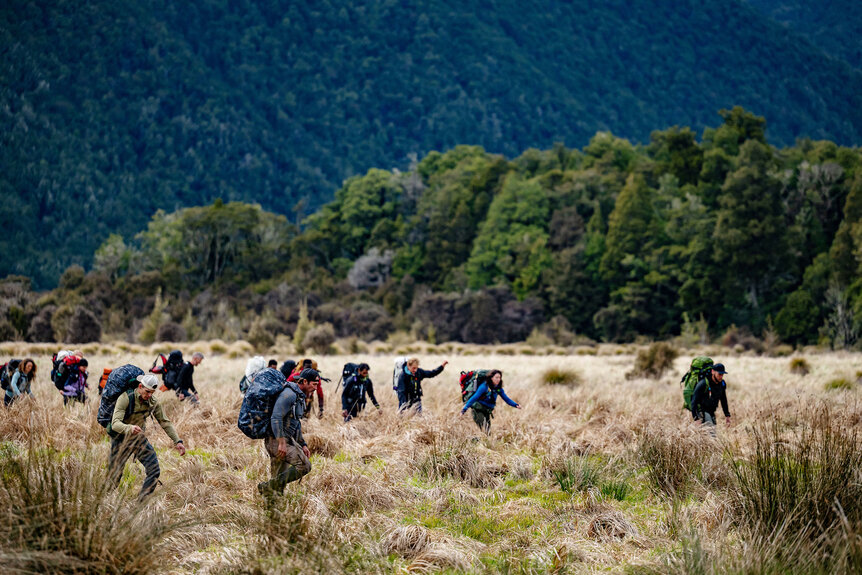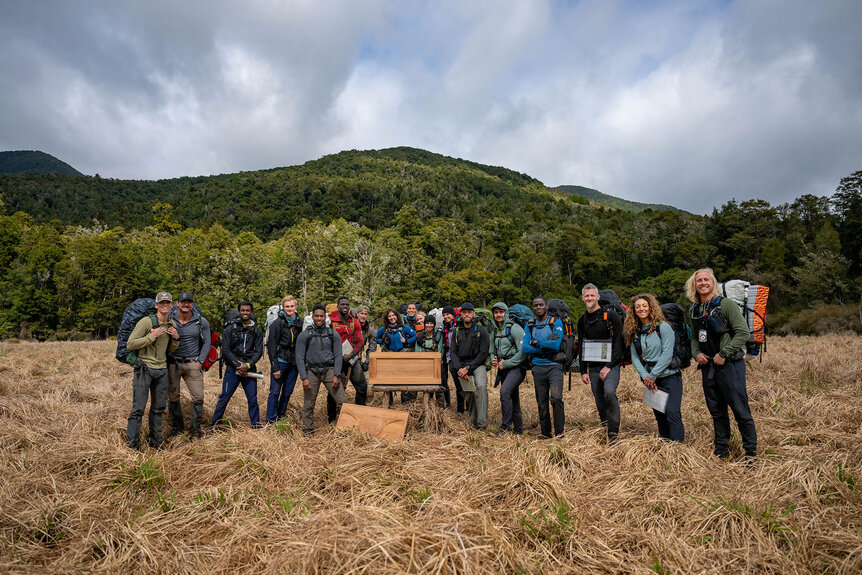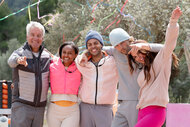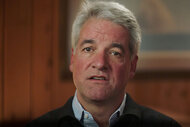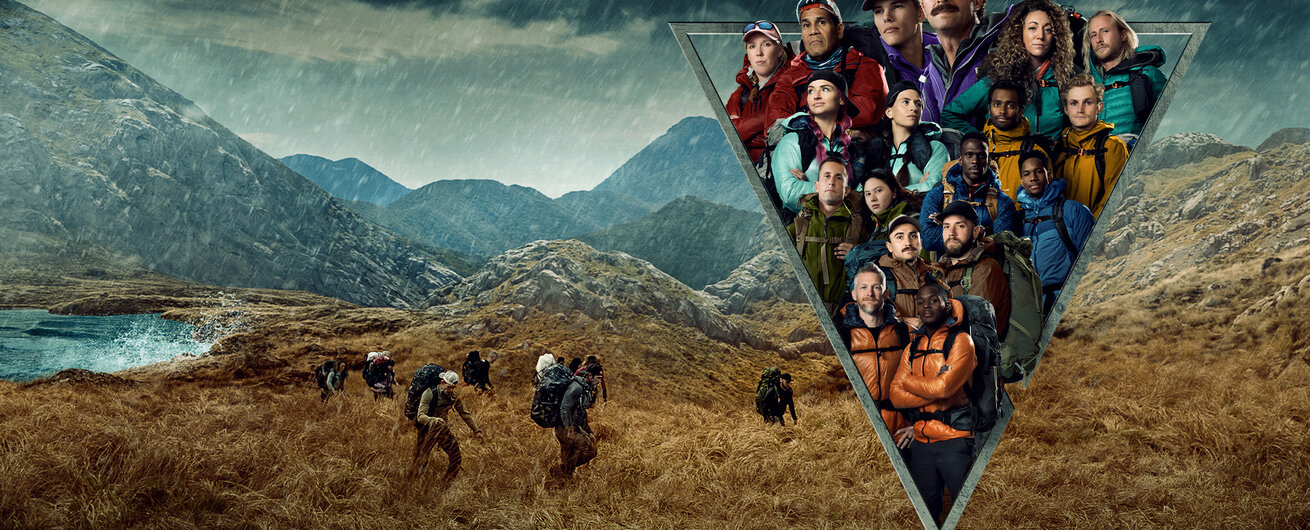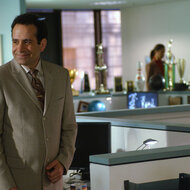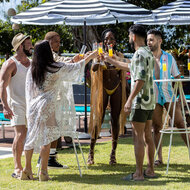Create a free profile to get unlimited access to exclusive show news, updates, and more!
Mikhail & Steffen Confirm What Tanked Their Race to Survive: New Zealand Game
One poor decision and a knee pop brought an early end to this Race to Survive: New Zealand team.
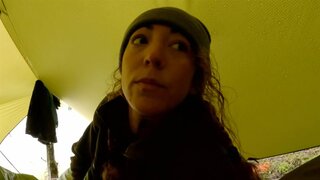
Spoilers for Race to Survive: New Zealand Episode 3
East coast teams were not vibing with the wilds of New Zealand during this season of USA's Race to Survive. First out were Emilio and Heather and the next to join them were the Brooklyn-based team Mikhail Martin and Steffen Jean-Pierre.
Turns out that 10 days of not eating anything coupled with a freak knee injury put the proverbial nail in the coffin of Mikhail and Steffen's race.
RELATED: Where to Watch Race to Survive: New Zealand: Cast & Extreme New Stakes Explained
USA Insider got on a Zoom with the duo to find out how they're doing now, if that early decision to bypass the food was what sunk them, and whether they think urban-based teams have a disadvantage.
First up, you're both very physically fit. So were you both looking for a competition challenge like this?
Steffen: It was a little bit of both. We definitely were seeking opportunity to do something that's outside of our comfort zone and outside of something that we typically do. But going into the race, I work as an instructor for the National Outdoor Leadership School. The year prior, I had spent just months doing backpacking courses for the school. So not only was I trained to live in the backcountry, but I had the opportunity to teach students and provide them with outdoor living skills. To me, I had my reps in. The idea of going on a race with just a compass and a map, I felt prepared and ready to do it.
Mikhail: I love competition. I'm always down for a great adventure, a challenge. Like you name it, call me up. I'm ready. When I found out about this race, and they told me that you've gotta go with somebody, I said that hands down that person is Stef because I know he had that experience in the backcountry. And I know he's a formidable competitor. I would only go with somebody who I know could beat me. So Steffen was definitely the person.
City Living
Let's hit a bit of controversy. When we spoke with Emilio, he said that there was a reason that the two East Coast teams were behind in that bog at the start. Do you think you had a disadvantage due to lack of exposure to that terrain or do you disagree?
Steffen: He's not 100% wrong. At the end of the day, the reason that we left that beach second to last was because Mikhail had gotten stuck. He was in it. That bog was something that was super unpredictable. Getting out of that thing was like...they put it in as the first challenge for a reason.
Mikhail: I like the controversy. So there's a couple things. I think we shouldn't discount how difficult and how treacherous the terrain of New Zealand can be. It's extremely unpredictable. Every person who showed up for this race, they're incredible athletes. And you know what? Sometimes New Zealand can get the best of you. Navigating this terrain is very difficult coming from the Northeast because we don't really have access to bogs or numerous rivers that we can just jump in. A lot of the challenges we've seen in New Zealand, at least for me, was the first time I've ever done some of these things. I've never really canoed before, so the dynamics of that were very challenging. Those mountain climbs, Steffen may have a little more experience with that. But I spent most of my time in front of a computer so to jump into some of these challenges, using ice axes and rappelling and all these things, it's not for the faint of heart. But if you have a chance to do it, you should.
RELATED: Divorced Race to Survive: New Zealand Contestants Explain Relationship Timeline: Watch
What You Didn't See on Screen: "Double Penalty"
Looking back, was bypassing the first food cache the decision that tanked your race?
Steffen: Personally, I think that making a different choice in the beginning would have changed the race for us completely. We definitely were in the back for that first race and it was because we didn't go for the food cache. What was left out of the story is we chose to go on the other side of the lake which meant that we were fighting against headwinds. We worked for an extra hour that no one else had to, fighting the water. And then we came out of it with no food.
Mikhail: That definitely felt like a double penalty. But even with all of that, we were still able to catch up to teams at the end of the day. But missing that food was really hard because recovery becomes extremely difficult. The weather, sometimes it gets very cold and we have to then try and stay warm, and that cost us calories.
The Season's First Big Injury
Tell us what happened with your knee. You were so close to that food cache so why tap out?
Mikhail: The knee, the knee, the knee. We were so excited because we knew we were a couple minutes away from finally getting to food. When my knee dropped and it popped, I really couldn't believe it. It just felt so surreal. Like, there's no way that at this moment, this is when this is going to happen. I really got pretty down. I felt like I was letting down my team and everybody at home. Then I thought everybody at home said, "Just promise me one thing, make sure that you come back home in one piece. We'll be proud of you no matter what." I remember that. So I made a decision to to tell Stef that [didn't] think I [could] go on with the race. We took some time and we spoke about it. The terrain was really, really bad. If we continued, it would have meant navigating through miles of huge rocks that can fall on you. It could end up in a situation that we really didn't want to put ourselves in. So that's why we we left the race. I think about it a lot. The best athletes know when to quit. It's always better to live to fight another day.
Steffen: Knowing the competitor that Mikhail is, it must have taken a lot. When he came to me and told me he's spent, that's a decision he wanted to make. I knew that there was very little that I could say to him to change his mind because I knew what he had to do to make that decision. I just respected him more for it. He was prioritizing his and my own safety. Five hundred thousand is a lot of money. But having Mikhail around is definitely more important.
Keeping Their Cool & Staying Positive
Unlike other teams, you didn't bicker much. You seemed to walk away stronger. Was that the case?
Steffen: There were definitely moments where we're both starving, we're wet, we're cold. So snapping on each other, it felt so easy to just turn on each other. But part of our strategy was to really make sure that we were cohesive and talking to each other. On that first night, when we saw that we were in [the] back [of] the pack — which was not at all where we planned on being — we had a really good talk of just putting that race behind us. I think that conversation really helped us to not be eliminated in that first race. Personally, I came out of it with a newfound respect for Mikhail. I proved something to myself during this race. It was really just an all-in-all positive experience.
READY: Here's Where to Follow the Race to Survive: New Zealand Competitors on Social
Mikhail: Personally, seeing so many elite athletes be their best, it's just super inspiring even for those there. It's definitely pushed me to train harder. If I had an opportunity to do this again, I definitely would. I'm already training. I'm getting ready right now for the next one. And I've been inspired to sign up for an ultra marathon. So that's something I'm going to be doing soon. I hope that it just feeds into all the other things in my life to just become better and better.
You can see for yourself just how brutal things will get for the Race to Survive: New Zealand contestants when new episodes air on USA Network on Monday nights at 11/10c.
Catch up on Race to Survive: Alaska on Peacock.
